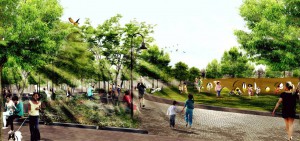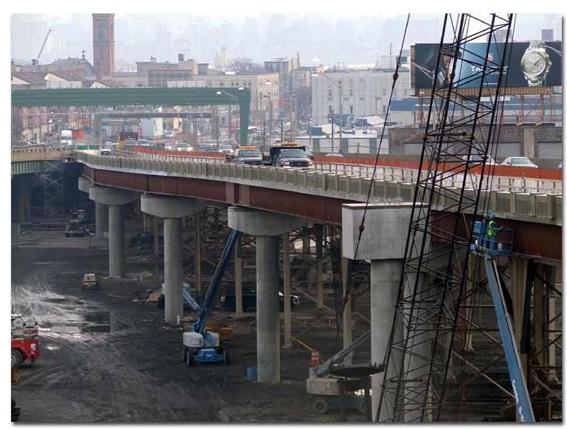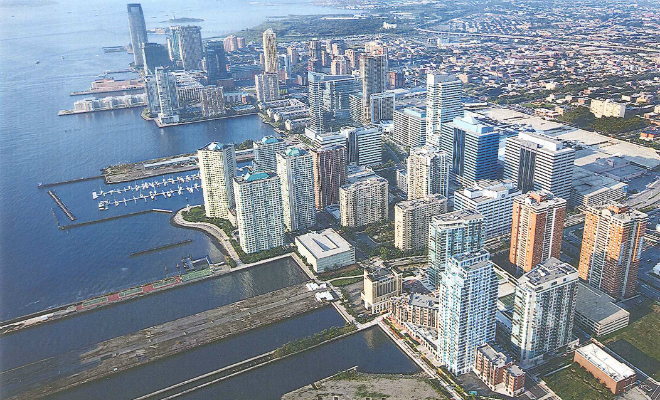New Jersey Future Blog
Hoboken’s Newest Green Infrastructure Project Takes a Step Forward
June 26th, 2014 by New Jersey Future staff
New Jersey Future summer intern MicKenzie Roberts-Lahti is the author of this article.

Rendering of proposed Southwest Park in Hoboken. Photo credit: Starr Whitehouse
The City of Hoboken has received a $250,000 grant for the next phase of construction of Southwest Park. This grant, from the U.S. Department of Interior and the National Fish and Wildlife Foundation, will fund the engineering designs needed to transform a one-acre parking lot into a green park.
Southwest Park was the subject of one of several stories in New Jersey Future’s new report, Ripple Effects: The State of Water Infrastructure in New Jersey Cities and Why it Matters, that highlight how water infrastructure affects people. Stormwater management, especially in urban areas, is a growing problem in New Jersey because of the age of much of its water infrastructure. Hoboken is one of the 21 cities in the state that have combined sewer systems, meaning both sewage and stormwater are handled by the wastewater treatment plant. During heavy rain events these combined sewers overflow, causing local property damage and affecting water quality by sending dilute raw sewage into local waterways.
When it is completed, Southwest Park will mitigate flooding by relieving some of the pressure that heavy rainfalls put on the city’s combined sewer system. Through planted areas, surface storage and underground detention chambers, all on-site, the park is designed to absorb 100 percent of a 5-inch rainfall. Over the past year, the project was designed, discussed and voted on by community members during public meetings and through online surveys.
This example of responsible stormwater management will not only help Hoboken address its stormwater problem but also increase the community’s recreational opportunities and enhance the value of nearby properties. It is the kind of project that can help transform New Jersey’s urban water infrastructure and at the same time revitalize its cities, and is an example of one of the strategies recommended in the Agenda for Change that New Jersey Future released last week.

















Does this represent a token gesture on the part of these Federal agencies or is it a positive, effective action of these agencies? Why can’t local resources accomplish this? Why are we accepting or why do we require Federal support for non-emergency infrastructure projects?
the National Fish and Wildlife Foundation is actually a non-profit organization, but it is easily confused with the US Fish and Wildlife Service.
Infrastructure is sadly not a priority in our US House of Representatives nor at the State level under the current administration, which baffles me as infrastructure projects would create tons of jobs, therefore more tax revenue, and more jobs, more revenue, etc…